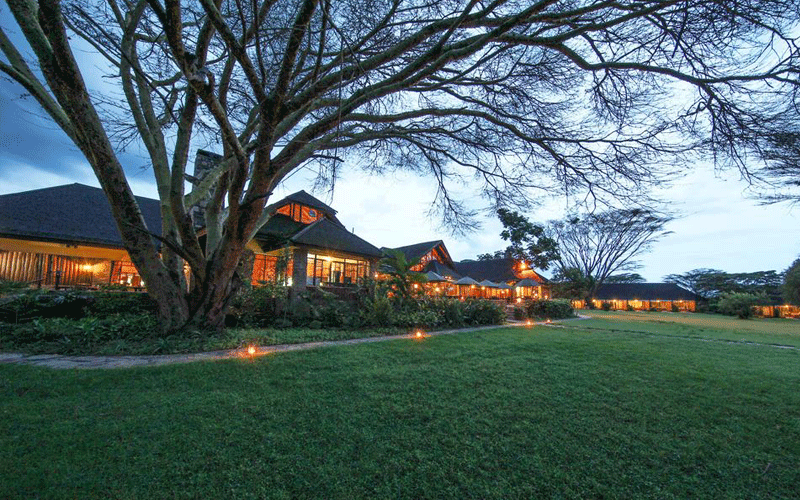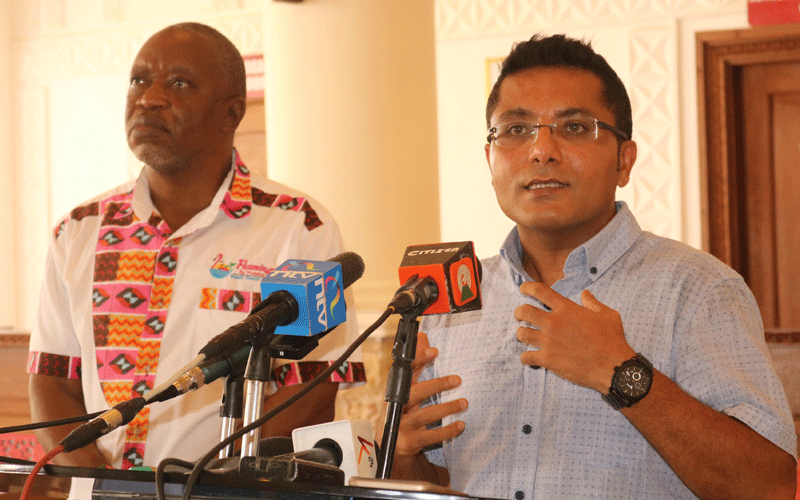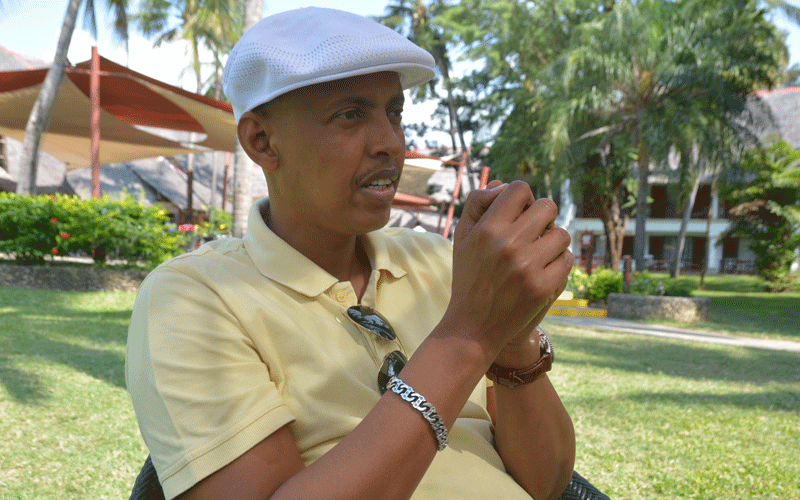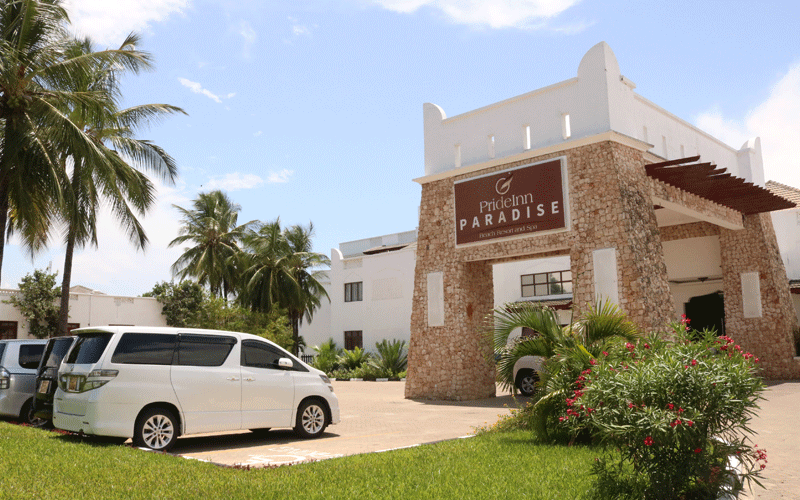Thousands jobless as virus sinks tourism sector
By People Team, April 2, 2020Harrison Kivisu and Peter Leshan
Tourism resorts countrywide continue to close business following the deadly Covid-19 pandemic that is causing massive deaths globally and leaving millions of Kenyans jobless.
Kenya Tourism Federation (KTF) chairman Mohamed Hersi says in the tourism sector, the jobs of about three million people who are employed directly or indirectly in the industry are under threat.
“We have about three million people in the tourism sector that will directly be affected by losing their jobs. It’s the worst-ever catastrophe to be experienced,” he said.
About 500,000 people who directly depend on the tourism sector will suffer as hotels, tour companies and airlines close shop because of the rapid spread of the novel coronavirus. Another 2.5 million who depend on the sector indirectly are also jobless.
Kenya Association of Hotel Keepers and Caterers executive director (Coast region) Sam Ikwaye says at least 10,000 employees in the hospitality industry have been affected by either being laid off or proceeding on mandatory, unpaid leave in the region.
“Hotels have sent many of their employees on unpaid leaves. Others are being paid half their salaries.
About 10,000 employees in the hotel industry have directly been affected by losing their jobs,” he said.
Locked gates
The latest to close its doors is Pride Inn Paradise Resort in Shanzu, a five-star hotel that suspended its operations on Tuesday.
The conference hotel threw in the towel after all its March and April bookings were cancelled. Its sister facility, Flamingo for Prideinn Beach Resort, has also shut down.
The two hotels have sent 500 staff on paid leave. “Those who had pending days were forced to take them while others have taken paid leave as we monitor the situation,” said Hasnain Noorani, founder and group CEO of PrideInn Group.

“We are using this opportunity to renovate our hotels so that in case of bounce back we can come fully charged,” he added at the Tuesday media briefing.
The two resorts, which mainly deal with foreign tourists, are now ‘ghost facilities’ with only security guards and a few managerial staff left while others are empty.
More than3,000 workers in North Coast hotels have proceeded on leave due to the virus that has cost tourism investors millions of shillings.
Traditionally, areas such as Malindi and Watamu rely heavily on the Italian market, which is among the worst hit countries by the Covid-19 pandemic with more than 12,000 citizens reported dead.
Kilifi county is also one of the hotspots in Kenya with six cases confirmed as Covid-19 positive.
Many of the other hotels and resorts have put up notices at their gates indicating that they have closed down temporary.
At the Ocean Beach Resort and Spa, in Malindi town, which normally operates throughout the year hosting both local and foreign guests, there was no activity going on except some renovation works.
The gate was closed and the normally busy entrance deserted. Maureen Awuor the hotel’s general manager and also Kenya Hotel Keepers and Caterers Association chairman, said the virus has crushed their business and caused huge losses.

Speaking at the hotel, she said they were forced to send staff home as there were no clients after directives were issued by the government for people to stay at home.
“The staff have been sent on unpaid leave until the situation normalises,” she said.
Awour is optimistic that the efforts being taken by the State will help reduce the spread of the virus and ensure normalcy returns.
However, other players in the sector say it will take several years for the industry to recover even after the pandemic fizzles out by the end of the year, adding that the economic toll it has so far taken will take long to heal.
“Many people will be without incomes for a long time. The disease has already depleted savings of foreign tourists who had planned to visit Kenya and other parts of the world,” said Patrick Wanjohi of Into Africa Eco Travel.
He said his travel firm has closed offices in Johannesburg in South Africa, Bristol in England and Nairobi, leaving 675 employees jobless.
“The pandemic has hit Kenya’s traditional markets, instilling fear and creating phobia for travel,” he said.

Njoroge Gichina, national chairman of Tour Guides and Drivers Association says tour operators have already ceased operations.
Although banks and other financial institutions might delay recalling of loans by about a year, travel firms will be unable to repay because of uncertainty in the sector.
“Business stopped as if without notice. Those who borrowed loans will certainly be unable to repay them in the next one year because of the fragility of the sector,” he said.
Hot air balloons
He spoke as the few remaining lodges and tented camps in Masai Mara Game Reserve also closed due to non-arrivals as a lockdown, because of the coronavirus pandemic, looms.
Only watchmen were left behind as doors even of big hotels closed for the first time since Mara was established in 1958.
The usual flow of vehicular and air traffic inside and outside the park is gone as workers left for home on unpaid leave.
High-end hotels such as Sarova Mara Game Camp, Fairmont Mara, Serena Mara Lodge and Keekorok Lodge closed last weekend.
“We have closed due to lack of business and fear of the virus. All our workers except our security guards have left for their homes,” said Peter Pere, manager of the prestigious Keekorok Lodge inside the park.
When the 3,150 square kilometre park was established in 1958, Keekorok Lodge, owned by the Narok county government, was the first establishment to be built to exclusively to serve white settlers.
It has since hosted famous personalities such as former US Secretaries of State Henry Kissinger and George Schultz as well as Prince Charles, the late presidents Jomo Kenyatta and Daniel Moi
Hot air balloon companies in the reserve have also sent their workers on leave until Covid-19 peters out.
Narok County government, whose annual budget is mainly accrued from tourism activities in the Mara, might not be able to deliver on its obligations if tourism does not resume before the June-October peak season, Joseph Sindiyo, the park’s Senior Warden says.
“We depend on tourism to deliver on our core mandate. If the season will end without tourists, most county services will grind to a halt,” Sindiyo said.
Local markets, the second largest revenue stream for the county, closed three weeks ago. Ends
